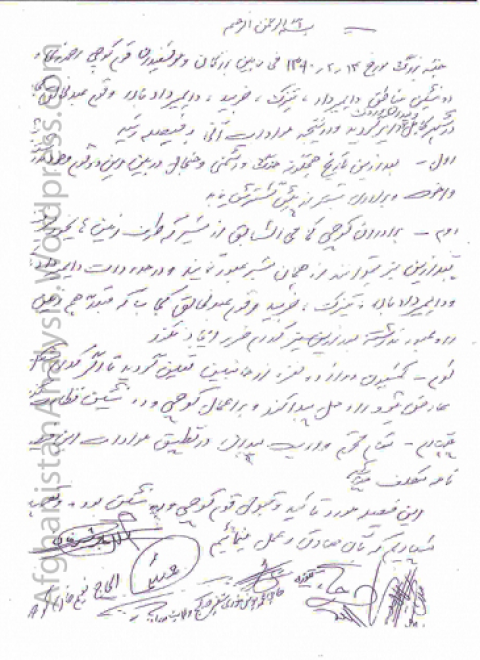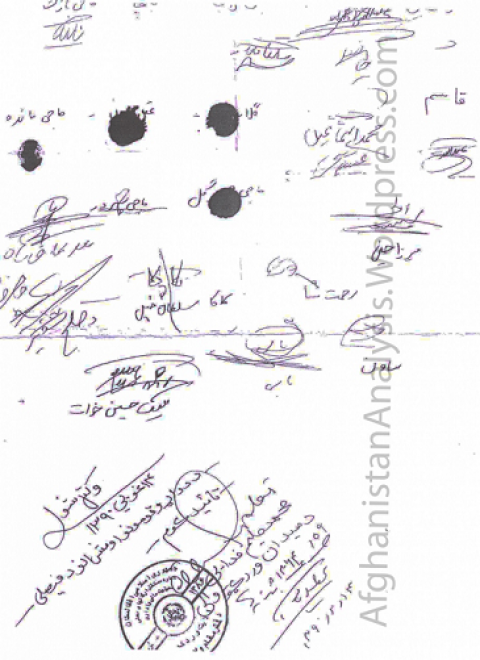by Ahmad Shuja
I have obtained documents, in Dari, that show a peace agreement between Kuchi and Hazara elders in the Behsud district of Maidan-Wardak province.
The agreement, which is about two weeks old, appears to have already been violated. But it is an interesting organic attempt at dealing with the longstanding conflict between the armed Kuchi nomads and Hazara villagers. Without waiting for the president’s commission appointed last year to resolve the issue, elders of both parties came together in a “grand meeting” in Kabul to hammer out a deal that includes the following four points:
They renounce all kinds of “war, animosity and dispute.”
Kuchis can pass through the areas inhabited by the Hazaras, but have to in return “not create any harm.”
A “twelve-person commission” consisting of members from both parties will be created to “find a solution to any problem that may arise and to supervise the conduct of the Kuchis and the villagers.”
The governor of Maidan-Wardak province is “bound to [help] implement the clauses of this agreement.”
The document bears the signatures and thumbprints of what appears to be Kuchi and Hazara leaders, as well as the seal and signature of Maidan-Wardak Governor Mohammad Haleem Fidayee.
It is not yet clear what the role of the twelve-person commission and the governor is now that violence has broken out and the police has been involved in the clashes. Nevertheless, the following two points remain true:

It is a good first step in the direction of resolving this conflict.
It represents a golden opportunity for the central government to step in and help the two sides implement an agreement that appears to have grassroots support because, ultimately, the best the government can do is broker a solution with acceptance from both sides, and because the government’s attempts so far to resolve the issue have failed miserably.
It is especially critical for the government to step in decisively now that the conflict is increasingly becoming a national issue and the Taliban appear to be piggybacking on it.